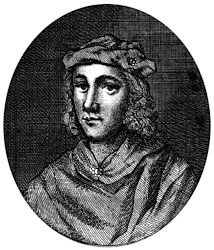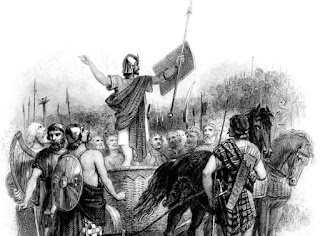Sacking of Berwick on Tweed
Edward's Butchery
Even in an age when life was cheap, the sacking, and devastation of Berwick-on-Tweed by Edward I at the end of March 1296, was an outrage.
The unnecessary slaughter of innocents so shocked the country that Edward has been seen as Scotland's King Villain ever since, with the deep-rooted anti-English feeling implanted at that time lasting for centuries.
Faced with a war in France, uprisings among the unruly Welsh, his own country restless, and the Scottish Border in confusion, King Edward did not have his troubles to seek.
When English merchants were murdered in Berwick and Roxburgh, he decided to strike fear into the hearts of all his enemies with such a drastic show of force that future defiance would be seriously discouraged.
At the time Bruce was being besieged by John Comyn in Carlisle and when Edward's army sent Comyn's forces fleeing, he marched on to Berwick where he encircled the town.
The commander of Berwick Castle was the tough Sir William Douglas the Hardy, and his steely presence at first gave the people a false sense of confidence.
So much so that they jeered at Edward's forces across their wooden stockade.
But at the first attack, the defenses crumbled and Edward's forces ran riot. The town fell immediately, yet Edward allowed the killing to continue until 7,500 souls had been put to the sword. His troops were given free license to have their will in any way they desired.
Almost the entire Flemish colony died, with 30 of their nobles fighting on until the burning roof of their hostel fell in upon them. At last, as Edward looked down on the harrowing scene and saw a remaining terrified child clinging to the bloody skirts of its mother, he ordered the butchery to cease.











Comments
Post a Comment